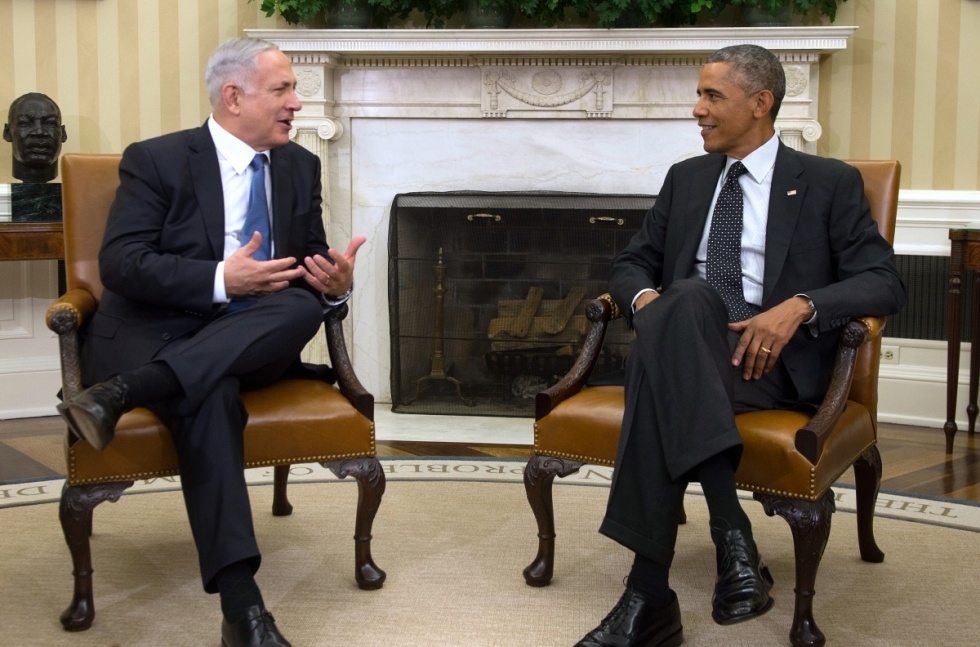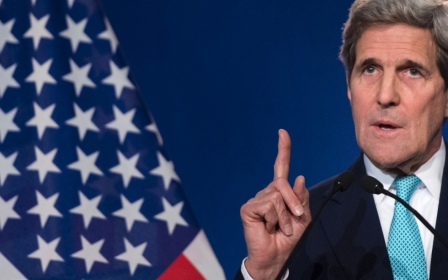US could release Israeli spy Jonathan Pollard in November

WASHINGTON - Israeli spy Jonathan Pollard could be released after serving a 30-year sentence when he becomes eligible for parole in November, the US Justice Department said Thursday.
The potential release, long opposed by US officials, comes shortly after world powers concluded a major nuclear deal with Iran and could be seen as an olive branch to Israel.
But the US administration was quick to deny that the decision would have anything to do with diplomatic considerations.
Pollard was sentenced to life in prison in 1987, two years after his arrest, and is eligible for parole in November 2015 - and on Friday the Justice Department indicated that it would not oppose his release.
There has been friction between the US and Israel since his sentencing, with Israeli leadership complaining that life sentence for spying on behalf of a close US partner is too harsh. Israel has for years sought Pollard’s early release. The US has consistently rejected those pleas.
Some US officials are advocating for Pollard to be released in a matter of weeks. Others expect it could take months, possibly until his parole consideration date in November.
Pollard attending a parole hearing in early July. His attorney, Eliot Lauer, said he had not heard from the parole commission “and I would expect that either I or my client would be the ones who would be notified’.’
"The Department of Justice has always and continues to maintain that Jonathan Pollard should serve his full sentence for the serious crimes he committed, which in this case is a 30-year sentence as mandated by statute," Department of Justice spokesman Marc Raimondi said.
A National Security Council spokesman was emphatic that the timing of the release was not part of any deal.
"Mr. Pollard's status will be determined by the United States Parole Commission according to standard procedures," Alistair Baskey said.
"There is absolutely zero linkage between Mr. Pollard's status and foreign policy considerations."
A US-born Israeli, Pollard was sentenced to life in prison in 1987 for passing secret US intelligence on Arab and Pakistani weapons to his other homeland, while he was serving as a civil intelligence analyst.
In an interview with an Israeli publication last year, US President Barack Obama said regarding Pollard’s sentence, “I have no plans for releasing Jonathan Pollard immediately, but what I am going to be doing is to make sure that he, like every other American who’s been sentenced, is accorded the same kinds of review and the same examination of the equities that any other individual would provide.’’
There have been a number of occiaions that the US has considered releasing Pollard, but this move was always greatly discouraged by senior leaders at the Central Intelligence Agency, the Federal Bureau of Investigation and the Justice Department. When he was sentenced, then-Defense Secretary Caspar Weinberger said it was hard to imagine “a greater harm to national security than that caused by” Pollard.
In Israel Pollard has become some sort of celebrity, with individuals like Noam Shalit, the father of former Hamas hostage Gilad Shalit saying: “I can only say that like all of Israel I will be very happy if he is released … I can’t speak to international relations … But on the human level, I’d say it’s about time.”
US leaders who have been critical of Obama’s aims with the Iran deal say that releasing Pollard is a weak attempt to appease Israel. US Senator Lindsey Graham said Pollard’s release “would be nothing more than a pathetic attempt by a weak administration to curry favor with our Israeli allies who across the board reject this dangerous deal with Iran".
Middle East Eye propose une couverture et une analyse indépendantes et incomparables du Moyen-Orient, de l’Afrique du Nord et d’autres régions du monde. Pour en savoir plus sur la reprise de ce contenu et les frais qui s’appliquent, veuillez remplir ce formulaire [en anglais]. Pour en savoir plus sur MEE, cliquez ici [en anglais].





